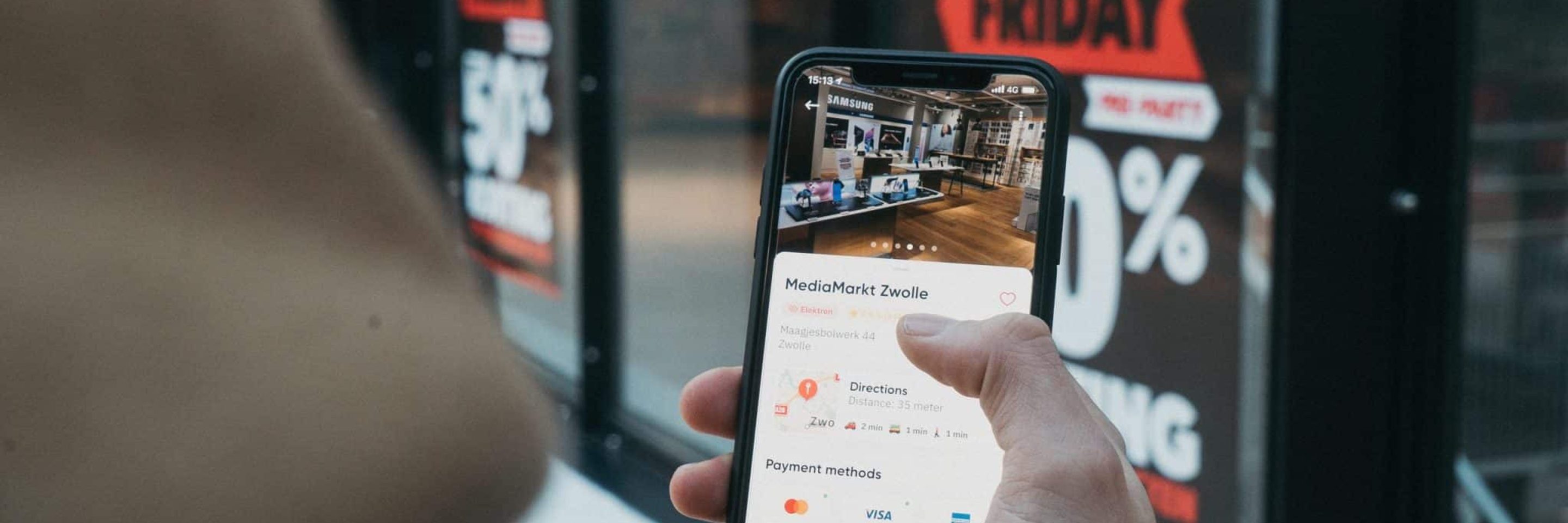
E-commerce operators are finding that a niche can be nice, with shrinking consumer buying power prompting online retailers to sharpen their offerings to secure market share. After a record-setting pandemic-driven boom, internet retail sales are returning to earth.
While the holidays are typically a strong sales period, inflation and rising interest rates are starting to bite, with growth expected to be pedestrian compared to the COVID-backed surge in online shopping.
Online sales fell sharply midyear in the United States, with discounting among retailers rampant as the competition for consumer dollars intensifies.
It was a similar story in the United Kingdom, and in Australia, with cost-of-living pressures forcing consumers to rethink their typical holiday spending splurges.
Retail spending in the UK in December fell 5.8 per cent year-on-year, the sharpest decline since records began in 1997.
In the United States, retail sales in December were up 6 per cent year-on-year, but analysts say high inflation was the main driver of the increase rather than a genuine rise in consumption.
Retailers may also be cannibalising their own results through repeat sales. Amazon, for example, held two Prime Days in October, usually a one-off event that is designed to drive sales.
It all adds up to a challenging environment for online sellers, who are left scrambling for solutions to shore up market share.
Rajeev Shaunak, Head of Consumer at UK-based Baker Tilly network firm MHA, says there is currently a distinct shift occurring in online consumer behaviour.
“We’re finding people are looking online, researching and going back to the behaviour of three to four years ago, where they would look online and then go into a retail store,” Mr Shaunak said.
“There is an element of shopping becoming a leisure activity again, back to the old cliché of retail being therapy.
“Retailers are finding that they need a physical presence and having somewhere you can go and return something is becoming important.”
Mr Shaunak says online retailers competing for discretionary spending are being most affected by the softer sales figures, with experience-related offerings such as travel or events still enjoying robust demand.
“Sales are being impacted, as all other consumer demand is, by cost-of-living increases,” Mr Shaunak says.
“If demand is going to stay low, fashion and other retailers competing for disposable income are going to have to cut costs.
“That could mean establishing a sales outlet and having deliveries done direct from suppliers, or it could mean generally being more flexible.
“For non-travel, leisure and non-food retailers, they are going to have to accept that demand will dip. People are shopping differently and spending a bit less.”
Optimising the offering
Brendan Sharkey, Head of Construction and Real Estate at MHA, says retailers need to consider whether their product offering is more suited to a bricks and mortar outlet or an online store.
Mr Sharkey says in recent years large department stores have reduced their floor space footprints, with items typically sold online through Amazon and other platforms no longer put on display.
“Retailers talk about the experience now to get people to come into their stores,” Mr Sharkey says.
“The fashion market is not online; the jewellery market is not online – people really want to feel it and touch it.
“And if you’re going to buy a sofa or a carpet, you’re probably not going to do that online.
“But there is still rationale for both – online and bricks and mortar can work together.
“What Amazon has done is really change the way users think about what an online shopping experience should be like.
“It should be seamless, and it should be fast. It should be ideally free delivery or membership-based delivery.
“A lot of smaller retailers still haven’t quite grasped that, or they haven’t made the investment in the digital experience to be able to match Amazon.
“It’s not that people are necessarily turning off online, but they may be turning off bad online experiences.”
In Mexico, Baker Tilly Managing Partner Manuel Aguilar says the pace of growth of new store openings is currently slowing down, with online shops providing the potential of faster growth.
Mr Aguilar says Mexican consumers were similar to those in the UK, with shopping habits differing widely between online and bricks and mortar retail.
“At a physical store, people may look around or try on some clothes but they’re not necessarily buying,” he says.
“When you have the online customer, they are more like foxes – they know what they want, and they get away. It’s different.”
Distribution and delivery
The big challenge for ecommerce retailers in Central and South America, Mr Aguilar says, is delivery, particularly on the last mile.
Recent research from Cushman & Wakefield showed 28 per cent of the total cost of delivery in Mexico was related to the last mile of delivery, with retailers needing to improve their infrastructure to maintain profitability.
“Cities such as Mexico City are very profitable for retail and distribution because you have a mass consumer market in relatively very few square kilometres,” Mr Aguilar says.
“But finding the talent and investing in infrastructure will always be a challenge – there is no new land created.
“You need to buy land for distribution facilities, and you are competing against retailing or services in highly populated areas.”
Bricks and mortar retailers in Mexico are highly attuned to customer experience, Mr Aguilar says, but that’s not the only strategy being employed by traditional retailers and online sellers.
Mr Aguilar says a popular niche for retailers is to lean into innovative concepts such as ESG, being eco-friendly, or having a nice story behind the brand.
“In Mexico City, as in many other big cities, there has been a surge in conscious consumption,” he says.
“Gen Z and Millennials are looking closely at the social responsibility of the brands they are buying.
“This is not a trend; this is something that will be a feature of the market for a while and the benefits will get bigger.
“One example is VEJA Shoes – they are an online retailer and they are very hyped here in Mexico.
“Their shoes are towards the higher end, price wise, but they are leaning on fair commerce and fair practices while not investing a lot in marketing.
“They are being fair with all of their vendors and they are impacting the high end market. It’s a sound strategy and it makes sense.”
Another strategy being adopted throughout Central and South America, Mr Aguilar says, is retailers focusing on their volume.
“Being big on volume or being a niche player can both make sense,” Mr Aguilar says.
“There are interesting businesses that have emerged after the pandemic around food delivery – not restaurants, but food that is ready to make.
“There is an interesting business in Mexico City that is expanding rapidly named Simply Sausages.
“They have physical stores, but their niche is that they deliver in less than 24 hours.
“And when the pandemic hit, a lot of people turned themselves into chefs or home cooks and barbecuing and grilling is now our second national sport.
“They have been able to sell high-end sausages for grillers, so being a niche player is working out very well from them.
“And now I believe around 80% of their sales come from ecommerce, not from people visiting their stores.”
While having a unique offering such as Simply Sausages seems a recipe for success, Mr Aguilar says retailers looking to establish their own niche need to ensure their customer service is at a higher level than their competitors.
“You are always being judged by the market and the consequences of operating without top notch customer service is almost immediate,” he says.
“You’ll get bad reviews, that impacts the brand, and you need to be very careful around your service.
“You cannot be a niche player without outstanding customer service.”









